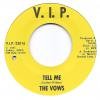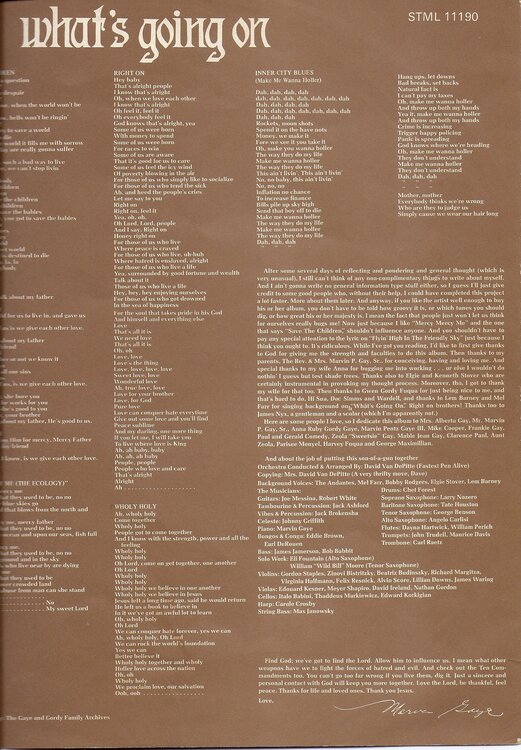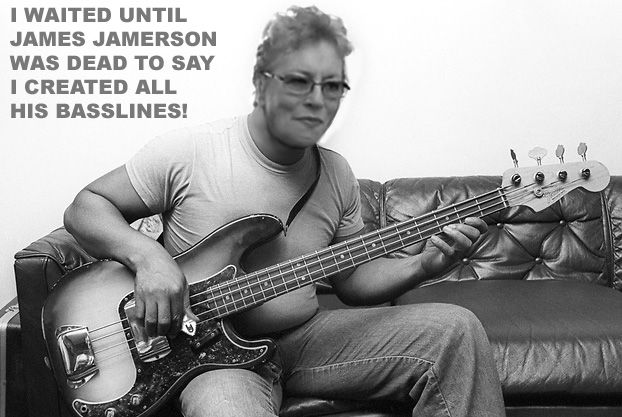I'm a musician, bass player in fact among other things, anyone wanting to see some credentials can pm me and get directed to my YT, some here already have, I've been doing it now for over 40 years, I've lived in various places but wherever I went I was always the best bass player in town and have never been skint because of it, and that is how you measure this. This isn't about Northern, which is garage music. In terms of bass it's amateurish at best and that's being generous, while I love it, I could get you playing 'I can't get away' or Sandi Sheldon or Sam Dees in an hour session.
I've studied Carol Kaye, James Jamerson, Paul MaCartney, Chris Squire, Jaco, Clarke, Jo Osborne, Rutger Gunnarrson, you name 'em, all of it pretty much. Not much I can't do, call my bluff if you want.
I've read the content here, and on every forum on the net on this subject.
OK so here's the bit where I rip apart one of my all time greatest heroes, James Jamerson. Firstly Jamerson is a legend, a master of the bass, an upright player who, by Berry Gordy's insistance was made to switch to the 'Fender Bass' (guitar) early on, this instrument wasn't even invented till 51. Jamerson was a Jazz player from Carolina, moved to Detroit with his upright and scored a job at Motown. An imposing black guy, he loved to drink, fight, womanise and play bass, a man after my own heart, he did all very well. He went to Motown and later died broken hearted because he was an unkown until players like myself began showing an interest in him on the internet in it's embryonic state early nineties.
Make no mistake here, I am a massive fan of the man, when I play a Motown hit onstage I play one finger, the 'Jamerson hook', you can't do it otherwise, you get a ghosted note having to hit a muted string in order to get the rythm going, two fingers you lose it, it doesn't sound like Motown anymore, hard to describe, again ask and you shall be provided. Jamerson was a huge part of the production process in Detroit and never really got the acknowledgement he deserved, isn't that always the way with this type of guy? In the internet age Jamerson became the poster boy for Motown, a tough no-nonsense guy from the ghettoes, hard drinking, hard womanising, jazz playing moonlighter always one step ahead of 'no moonlighting' Berry Gordy, as I said a hero, long live his legacy, a Motown legend, part of the production/writing side and undeniably a face of the black music scene in Detroit, therein lies the rub.
As a Bass teacher I taught my lads and lasses that Jamerson was 'the man' only for them to come back and say 'oh I watched this documentary last night and he didn't play on Bernadette it was a white guy', or 'he didn't play 'Darling Dear it was'...'He didn't play 'Reach out'...etc etc. Although appearing in the Marvin Gaye 'What's goin on' live videos, he didn't come on the UK Motown tour, that bass player was some 17 year old kid whose name isn't very much revered at all, I would have to look it up, yes a 17 year old kid could play it and make it sound real.
Now I like a good yarn, moreso than the next man, I can give out one or two myself I'm well known for it, and they contain elements of truth, but a good legend is exactly that.
I used to think that Bootsy played bass on Cosmic slop, and that Eddie Hazel played the guitar on the live shows and that Pink Floyd actually were involved in playing on their own recordings (Snowy White and Guy Pratt anyone?), that John Entwistle played bass on The Who albums (Macartney no less!) That Ringo, not Alan White from YES played the drums, that Jimi Hendrix played guitar on Electric Ladyland, not a team of four guitarists,
So who was this fox in black boots, with the Marilyn Munro hair and Cat-eye sunglasses, with the Fender Bass in the Brian Wilson 'Pet Sounds' vids? Now we get into the real Bass world. Carol Kaye was the go-to player for the likes of Phil Spector, she did everything from The Shangri Las to Frank Sinatra to Elvis Presley to Neil Sedaka, sure she played bass on 'God only knows' and 'Good Vibrations' everyone knows that surely. A consumate professional that could handle anything, believe me if you can make Brian Wilsons' musical halucinations into reality you can handle anything. We aren't talking here about a Carolina pauper who learned to play by twanging the strings of a smashed piano in a derelict church now, we are talking a trained professional.
Now I know about the books like 'Standing in the shadows' etc, and while I appreciate a good yarn as I have said, you have to face the reality, Motown as a black ghetto label was never gonna admit to using California session players on it's landmark hits, well ok, why establish an arm in LA then? When they started having huge hits and the money came rolling in it makes sense to upgrade, sure you had to pay Carol Kaye more than Jamerson who would've been on a 'wage' but everyone knows that quality you pay top rate for, and when it comes to hits you get what you pay for. Carol would have had no problem with recreating the Motown sound of Mary wells 'My Guy' 'Baby love' and 'Where did our love go' to believe otherwise is just plain naive. She could also do this without the Whiskey, the confrontation and more importantly in one take!
So I have read what well-respected musicologists and archivists have said here about this and while no disrepect is intended they know zip about this, being a good spinner of tunes with a good ear is one thing but it isn't this. Biographers get what they're given and accept what suits their agenda and what doesn't is rejected.
A hundred million people worldwide have grooved to Carol Kayes' bass, many have this very night and many more will tomorrow night, she recorded every 'date' (as she called them) and paid union dues accordingly for every one. Jamerson was a face at Motown who came up with many, many landmark bass lines that today are reckoned among the best ever played, you might be listening to a landmark one he came up with, but it doesn't mean you're listening to his 'stick' on the recording though...As if it mattered. Further, as a session player at various intervals, I can state that at times, if a recording has 'hit' written all over it, part of the contract to play on it often has a disclaimer stating 'I will not grass' on it! Sometimes people don't honour that part of it and the facts come out at some point later. Frankie goes to Hollywood's relax by The Blockheads? While it's nice to imagine your favourite group as the musical heroes you have to know that music is a business and is subject to all the rules and subterfuge that any business uses to ensure success. Again it doesn't apply much to Northern soul as it's mostly backing tracks or garage bands although some may be professional backing bands making a small wage in a small local studio.
Kiss or Pink Floyd fans might be better off erasing this post from their memory! YES fans can relax.










